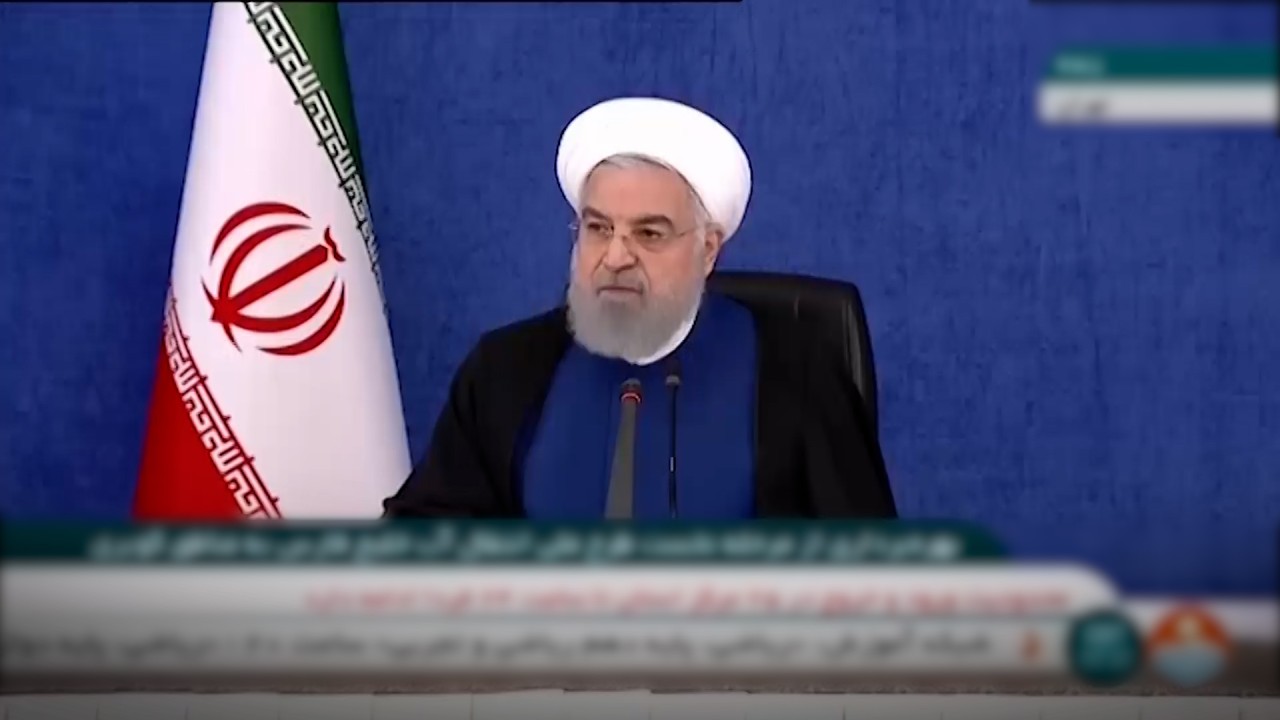
Iran’s enemies are spoiling for a fight, so how will it respond to top nuclear scientist Mohsen Fakhrizadeh’s assassination?
- From cyberattacks to missile strikes to full-blown proxy warfare, Tehran‘s retaliation for the killing of Mohsen Fakhrizadeh could take many forms
- But after four years of Trump’s ‘maximum pressure’ campaign, Iran is desperate for relief and a fresh start with a new US government
Iran blames Israel for killing nuclear scientist, vows response ‘in due time’
Today, however, the circumstances are different, and time is no longer on the Islamic republic’s side.

01:22
Next US president will have to give in to Iran, Rouhani says
Fakhrizadeh’s assassination followed a series of alleged cyberattacks on Iranian nuclear sites’ control systems, and a string of mysterious explosions in military hardware depots around the country. Three months ago, Abu Muhammad al-Masri – believed to be al-Qaida’s second in command – was gunned down in the streets of Tehran.
These incidents have unnerved ordinary Iranians and exposed the regime’s inability to maintain security within its borders. Tehran’s options will now be severely narrowed as it looks to exact revenge, and address its perceived failings, within a short period of time.
What happens next will reflect the regime’s interpretation of the attacks. If, as has been reported, it sees them as an attempt by Israel to ignite a war in the waning days of the Trump administration, one can expect only moderate retaliation that does not pose the risk of spilling over into the rest of the Middle East and beyond. This could take the form of a cyberattack aimed at crippling a highly visible target, such as an Israeli ministry.

The other side of the coin is the regime’s perception of its own grip on power and whether it aims to re-enter negotiations over a new nuclear deal with the incoming Biden administration. If the leadership needs to avoid appearing weak to shore up internal cohesion, a big show of force is needed. Iran has a plethora of options in this regard, most of which can be assigned to its proxies.
Since the end of the Iran-Iraq War in 1988, Tehran has mastered a military doctrine of low-intensity conflict to achieve its strategic and operational objectives. Iran’s asymmetrical response encompasses a wide range of non-state actors – Hezbollah in Lebanon, popular mobilisation units in Iraq, the Syrian National Defence Force, and the Houthis in Yemen, to name just a few.
This network of influence includes proxies with different degrees of capabilities and allegiance to Iran. Nevertheless, it is an integral part of Iran’s security doctrine, alongside more conventional capabilities such as advanced ballistic missiles, long-range armed drones, and cyberwarfare.

Iran assassination could undercut Joe Biden‘s diplomatic options
Despite the Middle East’s transition to new regional security architecture, the Iranian nuclear programme is slowly, but inexorably, moving back into the spotlight.
Dr Alessandro Arduino is the Principal Research Fellow at the Middle East Institute-National University of Singapore.

